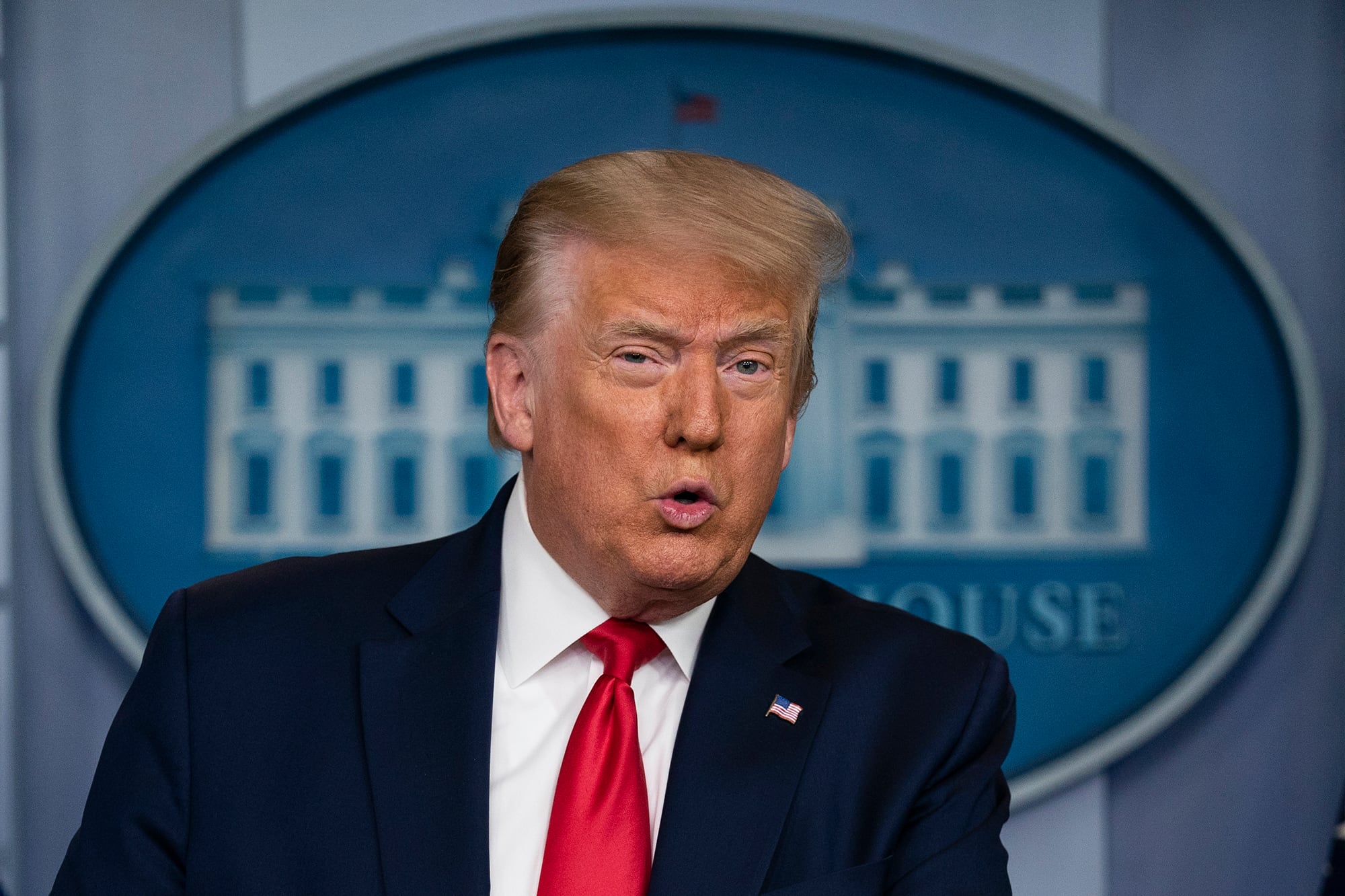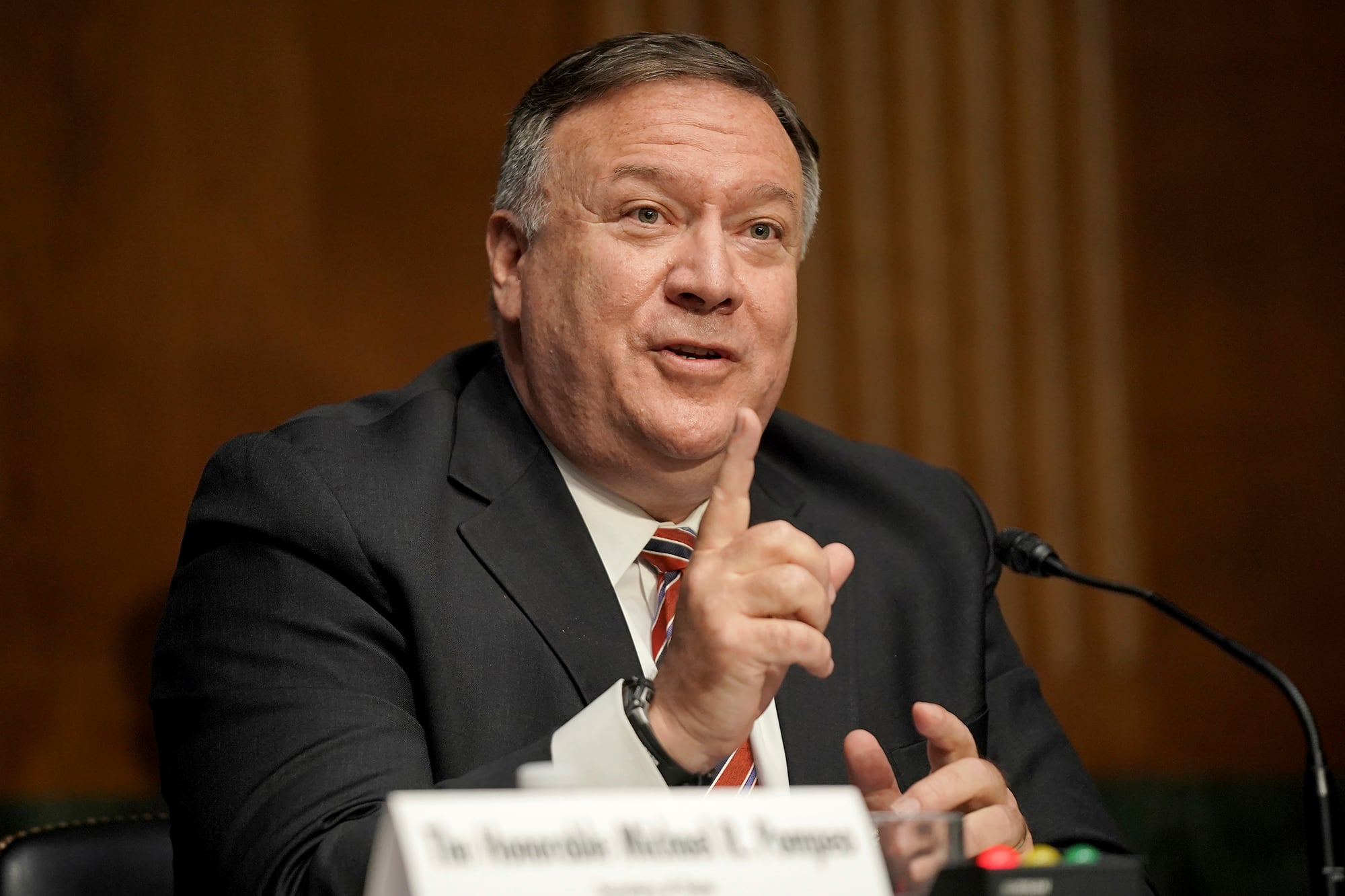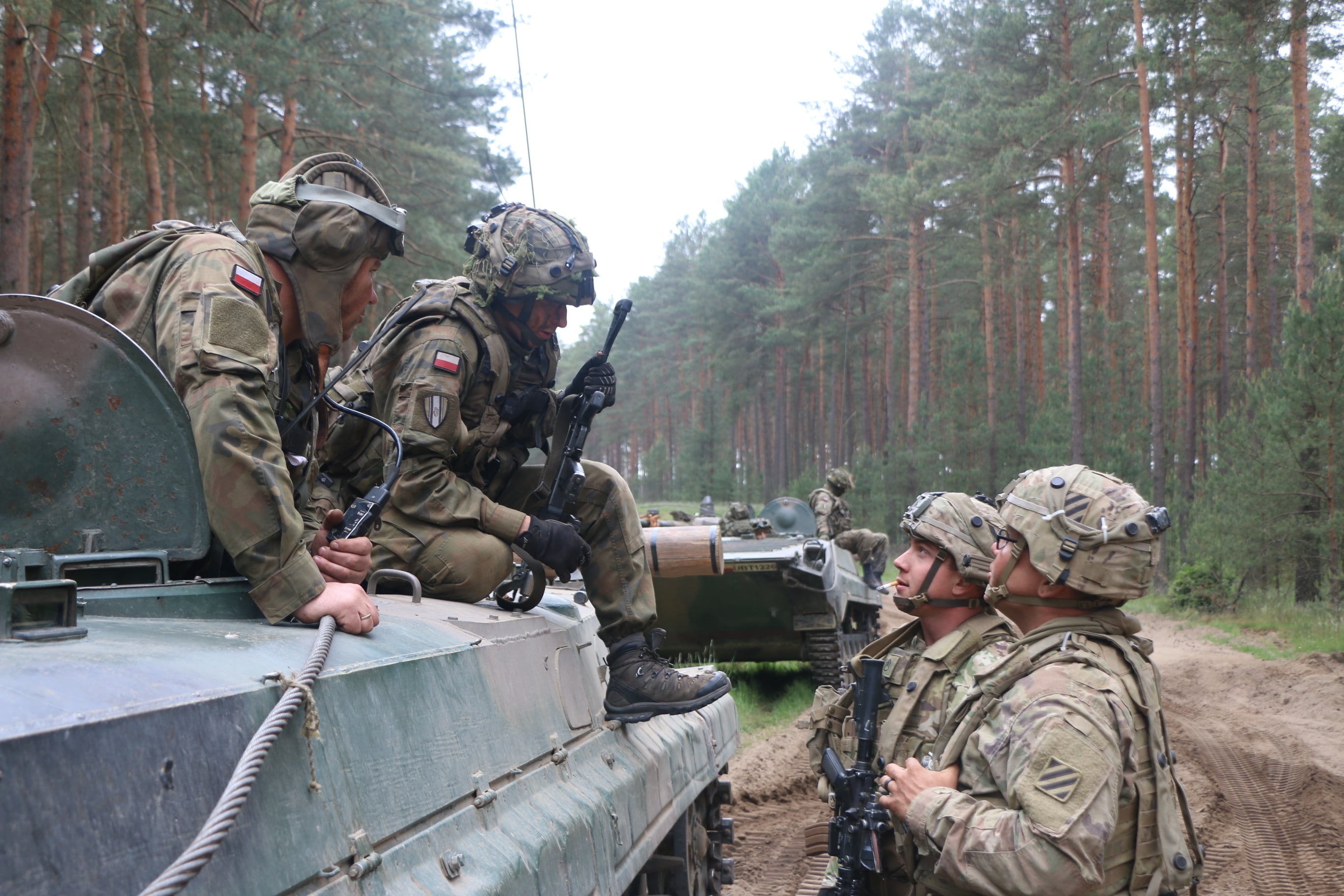WASHINGTON — Secretary of State Mike Pompeo said Thursday that he and his team have warned Russian officials about all threats that Russia poses to Americans and U.S. interests in various parts of the world. Pompeo also defended the Trump administration’s tough line on China, saying the communist nation represents a potent threat to the U.S. and Western-style democracy.
Pompeo would not say whether he had specifically raised allegations that Russia is paying bounties to Taliban fighters to kill American troops in Afghanistan, but he said the discussions with the Russians involved all manner of threats. He told the Senate Foreign Relations Committee that threats from Russia against Americans in Afghanistan, Libya, Syria, Ukraine and elsewhere had been covered.
Pompeo’s testimony came a day after President Donald Trump told an interviewer he had not raised the bounty allegations in numerous phone calls with Russian President Vladimir Putin despite concerns about them from the intelligence community. Among the Russian officials, Pompeo said he has discussed threats generally with Foreign Minister Sergey Lavrov, as has the U.S. ambassador to Russia, John Sullivan.
RELATED

“Yes, I can assure you that each time I have spoken to Foreign Minister Lavrov, I have raised all of the issues that put any Americans at risk,” Pompeo said in response to a question from the committee’s top Democrat, Sen. Bob Menendez of New Jersey. “We have raised this at my level and not only at my level.”
Pompeo declined to say whether he would recommend that Trump raise the matter with Putin but said the Russian leader understood full well the U.S. position. He pointed to military action taken against several hundred Russian mercenaries who were advancing on American forces in Syria in 2019. Those fighters “are no longer on this planet,” Pompeo noted.
Menendez, a vocal critic of Pompeo, challenged him about the Russian threats and Wednesday’s announcement by the Trump administration about the redeployment of several thousand U.S. troop s from Germany. Trump’s top diplomat rejected complaints that the administration has been soft on Russia.
“We’re the toughest administration ever on Russia,” Pompeo said, noting the many steps, including sanctions, that have been taken to counter Russian disinformation, Moscow’s dominance over European energy supplies and aggressive actions in Ukraine and Georgia.

Numerous critics, including some former Trump administration officials, have said Trump’s self-acknowledged personal affinity for Putin has undercut U.S. efforts to both counter Russian aggression and enlist allies to join its cause. They have pointed to Trump’s refusal to accept intelligence findings that Russia tried to help him win election in 2016, the president’s willingness to praise Putin, and his efforts to condition vital military assistance to Ukraine on a political favor.
Pompeo rejected those assertions.
“This administration has acted to protect our interests and our friends,” Pompeo said, adding that he and others would act to counter Russian attempts to meddle in the 2020 presidential election. “We’re taking seriously the threats that the Russians will engage in disinformation campaigns.”
RELATED

Pompeo said the administration is acting with sanctions and threats of such penalties to prevent Russia from completing the Nord Stream 2 pipeline, which would carry natural gas to Europe, in particular Germany, and increase the continent’s dependence on Moscow for fuel.
“We want Europe to have real, secure, stable, safe energy resources that cannot be turned off in the event Russia wants to,” he said.
Pompeo also took aim at China in his testimony, saying the administration was battling the Chinese Communist Party’s efforts to expand its influence on multiple fronts. He pointed to recent moves the U.S. has taken to confront China’s assertiveness in the South China Sea as well as limiting freedoms in Hong Kong and its human rights record in Tibet and western Xinjiang province.
He said those, along with China’s recent skirmishes with India and border disputes with the tiny Himalayan kingdom of Bhutan, are “indicative of Chinese intentions and they are testing, they are probing to see if the world will stand up to them.”




